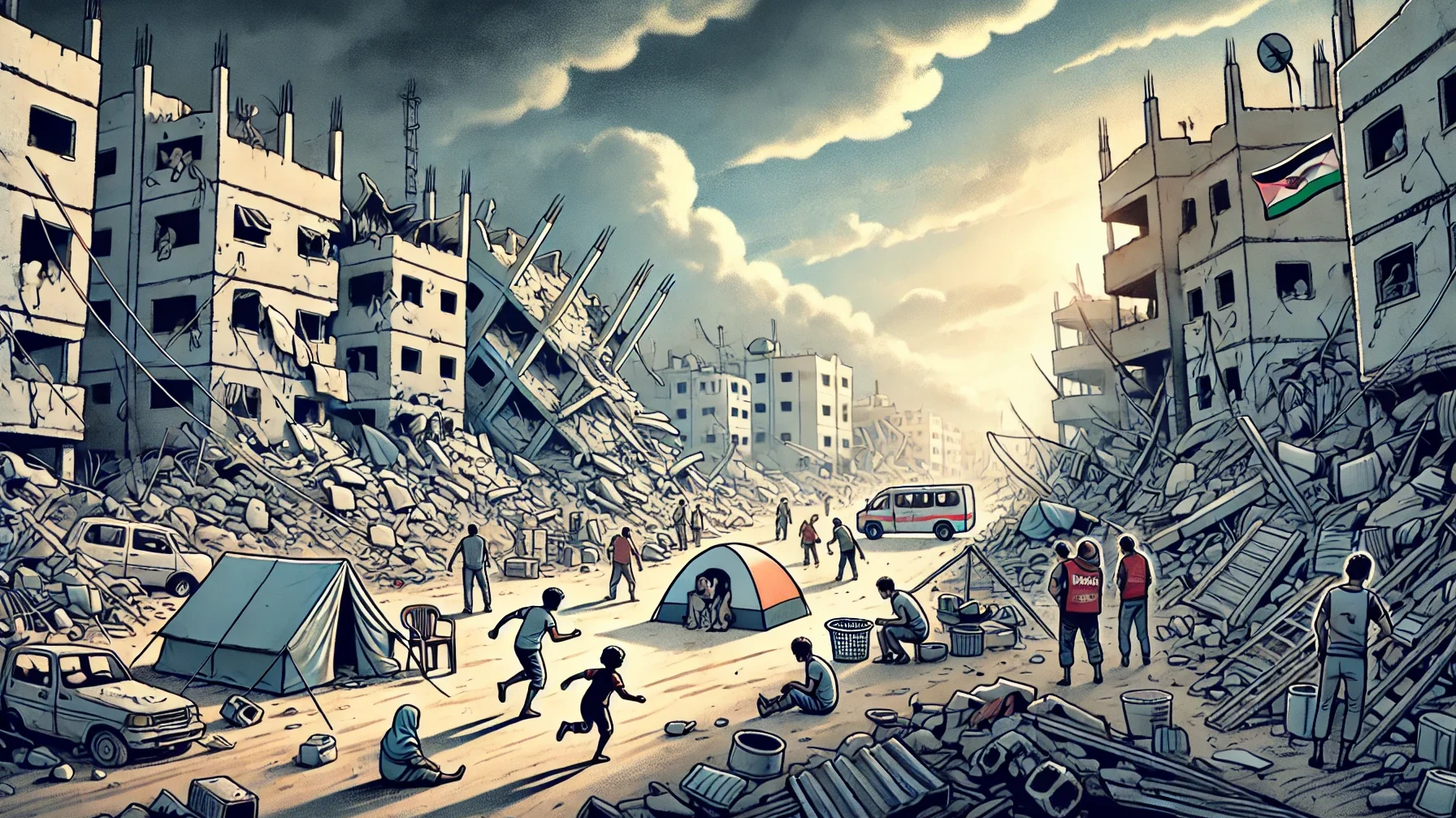It’s Time for an Honest Conversation About Gaza
Al-Arabiya, Saudi Arabia, January 17
After the initial surge of enthusiasm that swept across the Arab world following Hamas’ attacks on Israel on October 7, 2023, and the subsequent brutal assault on Gaza and its people, a vast majority of the Arab public showed unwavering support for Hamas. Only a small segment of the Arab elite questioned the efficacy of these attacks and the significant cost they might entail for the Palestinians and their cause. The dominant Arab public opinion posited that it was not the appropriate time to critique Hamas, given its fight against an extermination army accused of committing war crimes, genocide, and crimes against humanity in full view of the world.
Nevertheless, following an agreement on a prisoner exchange and a return to sustainable calm, a new opportunity presents itself for an objective, calm, and emotionally nuanced discussion to dissect the events since Hamas’ attacks and the ensuing violent aggression. This discourse isn’t solely the domain of intellectuals, writers, the media, and Palestinian and Arab public opinion, but it is primarily the responsibility of Hamas, the Palestinian National Authority, and the remaining factions to engage in it.
Though the tension and destruction continue to dominate Gaza, prioritizing a thorough review of these events is essential, even obligatory. Many might concur that the Palestinian struggle has endured severe setbacks over the last fifteen months, significantly diverting the pursuit of rights and the dismantling of the apartheid regime, while hopes for an independent Palestinian state have dimmed.
The protracted, blood-soaked war—the most extended conflict since the 1948 Nakba—has established new ground realities. The political horizon appears bleak, making future discourse seemingly futile. Certainly, even before Hamas’ attacks, Israel, bolstered by the Trump administration, had effectively removed the Palestinian issue from the regional agenda, ending talks of potential negotiations.
Give the gift of hope
We practice what we preach:
accurate, fearless journalism. But we can't do it alone.
- On the ground in Gaza, Syria, Israel, Egypt, Pakistan, and more
- Our program trained more than 100 journalists
- Calling out fake news and reporting real facts
- On the ground in Gaza, Syria, Israel, Egypt, Pakistan, and more
- Our program trained more than 100 journalists
- Calling out fake news and reporting real facts
Join us.
Support The Media Line. Save democracy.
Some perceived this as a transient state, likely to change with Netanyahu’s political exit and a shift in American leadership. Yet, the war has entrenched the marginalization of the Palestinian cause, reshaping it into a pressing humanitarian crisis that emphasizes saving Palestinians from ongoing violence, destruction, displacement, and potential deportation.
This scenario has been exacerbated by internal Palestinian divisions, which Israel has exploited to perpetrate further crimes, neglecting both international responses and judicial scrutiny. The aggressive conflict, initially perceived as a catalyst for unity and strategic alignment among Palestinians, has instead deepened divisions and reciprocal blame between Hamas and the Authority, striking at a time when Israel has indiscriminately targeted both factions—be it through killings, demolitions, and genocide in Gaza, or raids and land seizures in the West Bank.
The human toll of this war is the most sobering, painful, and tragic aspect. Statistics reveal a horrifying aftermath of aggression: 46,000 martyrs, with humanitarian organizations claiming the number exceeds 70,000. There are 110,000 wounded, a quarter with permanent disabilities. Nine out of ten homes were either destroyed or damaged, prompting international experts to equate it to “killing homes,” akin to genocide.
Of the 564 pre-war schools, 534 were either obliterated or rendered unfit for education. An entire year of formal education was lost for Gaza’s 660,000 students. A staggering 1.9 million people, equating to 90% of the Strip’s populace, faced repeated displacements, with hundreds of thousands now sheltered in tents and shelters, prone to further occupation bombings. The health system has nearly collapsed, and the war has left 40 million tons of debris in its wake, with landmine removal projected to take a decade.
Did the strategists and executors of the attacks foresee such a harrowing aftermath? Could some actions during the attacks, later exploited by Zionist propaganda to justify brutal Palestinian reprisal, have been averted? A retrospective on the war’s conduct over recent months, alongside the negotiations, is imperative.
This moment isn’t about passing judgment; history and future developments will serve that purpose. Even victors scrutinize past wars, so how can there not be a review of an issue that has regressed so drastically? The Palestinian Authority must also partake in this introspection. Why did it fixate on its rift with Hamas, allowing the West Bank to become a battleground for aggression and territorial usurpation without intervening?
The upcoming period is crucial for the Palestinian cause—a defining moment of existence. Creating consensus on a liberation strategy, including means, and determining whether the struggle will be peaceful or military is urgent. Antiquated methods, reneging on unity agreements, monopolizing decision-making, and excluding citizens from such processes—be it through elections or the ratification of agreements—are obsolete and merit change. —Abdullah Abdul Salam (translated by Asaf Zilberfarb)



